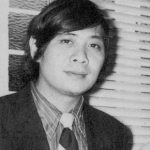Desmond Dekker
Desmond Dekker Biography
Desmond Dekker: A Reggae Icon
Introduction
Desmond Dekker, a name synonymous with the rise of reggae music, was a pioneer who introduced the world to the vibrant sounds of Jamaica. Known for his distinctive voice and infectious rhythms, Dekker’s music transcended borders, captivating audiences globally. While Bob Marley is often credited with popularizing reggae, it was Desmond Dekker who first brought Jamaican music to international acclaim, paving the way for future generations.
Early Life and Career Beginnings
Birth and Childhood
Desmond Dacres, known professionally as Desmond Dekker, was born on July 16, 1942, in Kingston, Jamaica. Orphaned during his teenage years, Dekker faced the challenges of life early on. Despite these hardships, he discovered solace in music, a passion that would soon define his life and career.
Discovering Music
After taking on an apprenticeship as a welder, Dekker’s vocal talent was first recognized by his colleagues. Encouraged by their admiration, he decided to pursue a career in music. In 1961, he auditioned for two influential music producers, Coxsone Dodd and Duke Reid, but it was Leslie Kong, owner of the Beverley’s label, who saw his potential.
Rise to Stardom
Breakthrough Hits
In 1963, Dekker released his first single, “Honour Your Father and Mother,” which climbed to the top of the Jamaican charts. This was the beginning of a string of hits that established him as a leading figure in the ska and reggae scenes. With the release of “King of Ska,” backed by the Cherrypies (later known as the Maytals), Dekker’s reputation as a prominent artist was solidified.
The Aces and Continued Success
Desmond Dekker soon formed a backing group, the Aces, consisting of siblings Carl, Clive, Barry, and Patrick Howard. Together, they produced numerous hits, including “Get Up Edina,” “Parents,” and “Mount Zion.” These tracks showcased Dekker’s ability to blend upbeat ska rhythms with meaningful lyrics, resonating deeply with audiences.
The Rudeboy Era
A New Musical Direction
In 1967, Desmond Dekker embraced the emerging “rudeboy” culture, characterized by rebellious themes and rocksteady beats. His song “0.0.7. (Shanty Town)” became an anthem for this movement, reaching the U.K. Top 15 and marking his first foray into international success. Songs such as “Rudy Got Soul” and “Rude Boy Train” continued this trend, further cementing his status as a cultural icon.
International Acclaim
Dekker’s music found an enthusiastic audience in the United Kingdom, where the mod subculture embraced his sound. His tours in Britain were met with fervent admiration, as fans flocked to witness the Jamaican sensation.
Global Impact and Legacy
The Success of “Israelites”
Desmond Dekker’s 1968 release, “Israelites,” catapulted him to global fame. The song reached the top of the U.K. charts and broke into the U.S. Top Ten, making Dekker the first Jamaican artist to achieve such success with a purely Jamaican song. Its infectious rhythm and poignant lyrics struck a chord with listeners worldwide, solidifying Dekker’s influence on the international music scene.
Continued Creativity
Throughout the late 1960s and early 1970s, Dekker continued to release hit after hit, including “Beautiful and Dangerous,” “Shing a Ling,” and “It Mek.” His collaboration with producer Leslie Kong was a hallmark of his career, yielding timeless masterpieces like “You Can Get It If You Really Want.”
Challenges and Resilience
The Loss of Leslie Kong
In 1971, the sudden death of Leslie Kong left Desmond Dekker at a crossroads. Having relied on Kong’s guidance throughout his career, Dekker faced the daunting task of moving forward without his mentor. Despite this, he continued to produce music, albeit with varying success.
Navigating the 1970s and 1980s
During the 1970s, Dekker relocated to Britain and adapted to changing musical landscapes. While his popularity waned, the rise of the 2-Tone movement in the late ’70s and early ’80s reignited interest in his work. Albums like Black & Dekker and collaborations with bands such as the Rumour showcased his versatility and enduring appeal.
Later Years and Enduring Legacy
Revival and Recognition
In the 1990s, Desmond Dekker experienced a resurgence in popularity, thanks in part to the consistent reissues of his music by labels like Trojan. His influence on ska, rocksteady, and reggae music remained undeniable, with numerous compilations and live performances celebrating his contributions to the genre.
Passing and Remembrance
Desmond Dekker passed away on May 25, 2006, in his London home at the age of 64. His legacy as a trailblazer in reggae music continues to inspire artists and delight fans around the world. Dekker’s ability to convey powerful messages through his music endures, ensuring that his voice will be heard for generations to come.
Conclusion
Desmond Dekker’s journey from the streets of Kingston to international stardom is a testament to his talent and resilience. As a pioneer of reggae music, he opened doors for countless artists and left an indelible mark on the global music landscape. His legacy remains vibrant and his music continues to resonate, reminding us of the profound impact one voice can have on the world.












